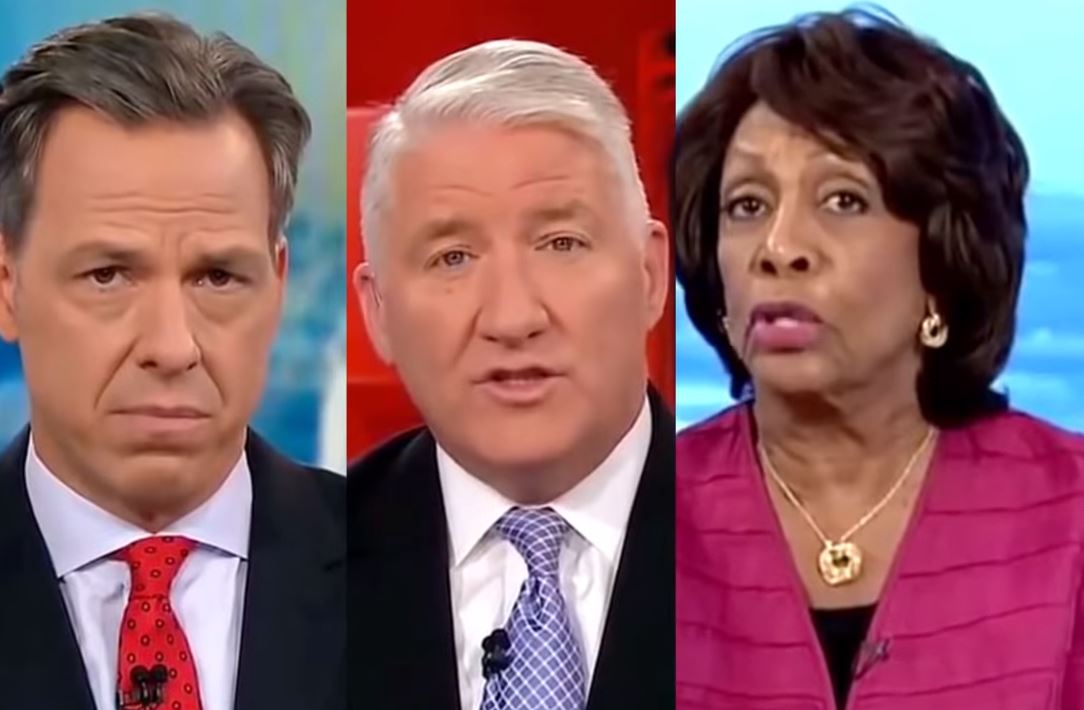The Muller probe has ended and with it the narrative that President Trump colluded with the Russian government to win the 2016 election. The reputations of media pundits and whole news organizations are now in shambles and exposed for all to see, like grotesque deep sea creatures beached on the sand after the tide goes out.
It’s not a pretty sight. But let’s control our gag reflexes for a moment to consider just a few of those who benefitted over the last two-and-a-half years from promoting what’s turned out to be a baseless conspiracy theory.
1. Rachel Maddow and MSNBC
Rachel Maddow has spent a tremendous amount of her airtime devoted to Russiagate speculation, staking her personal reputation on it being true. Maddow is a very intelligent person – she was a Rhodes Scholar after all. But, like many in the media, she somehow abandoned her critical thinking skills under the influence of what the writer Justin Raimondo describes as “Trump Derangement Syndrome.”
There are probably hundreds of hours of Maddow Russia clips by now, but the perhaps most poignant is her recent reporting of the end of Mueller’s probe. As she speculates, without evidence, that Mueller was somehow silenced from telling the truth about Russia, her eyes fill with tears (volume warning as the person recording can’t control her glee):
2. CNN and Most Cable News
Let’s be fair to Maddow by also calling out nearly the entire cable news apparatus, and especially CNN, which terrified gullible people over the past two years with the idea that the President may be a Manchurian Candidate. Stacking their panels with pundits eager to promote the Russia nonsense, they largely ignored rational voices who disputed it, including left-leaning journalists Glenn Greenwald, Michael Tracey, and Aaron Maté. Here’s an amusing montage by the video artist placeboing showing the obsession in full swing:
3. The Washington Post and Other Print Media
There were numerous false stories published by once-respectable print media related to supposed Russian influence over our elections, and The Washington Post was among the worst offenders. The paper, which adopted the slogan “Democracy Dies in Darkness” right after Trump’s election, proceeded to pull the wool over the public’s eyes with since-discredited information. This includes stories about Russia supposedly hacking Vermont’s electricity grid and another about websites, including the Drudge Report and the Ron Paul Institute, that allegedly were agents of the Russian propaganda machine.
There were other evidence-free whoppers published by other newspapers that haven’t yet been retracted, including The Guardian’s reporting that former Trump campaign manager Paul Manafort supposedly met with Julian Assange in the Equadorian embassy to conspire on the release of Hillary Clinton’s emails, and McClatchy’s reporting that former Trump attorney Michael Cohen went to the Czech Republic, possibly to meet with a Kremlin agent.
4. Louise Mensch and the other Twitter Tinfoil Hats
British blogger and former Parliamentarian Louise Mensch is one personality who gained a large social media following by peddling various conspiratorial stories about Putin’s influence and calling out everyone under the sun for their alleged links to Russia. Some of her more famous accusations were directed at Bernie Sanders, Rudy Guliani, and the 15-year-old girl that disgraced Democratic congressman Anthony Weiner sexted with.
There were a whole raft of Twitter prophets like Mensch who proclaimed some inside knowledge about the Russia investigation, but she was one of the most unhinged and comically wrong. This tweet about Steve Bannon’s supposed impending doom is worth a belly laugh or two:
— Louise Mensch (@LouiseMensch) July 19, 2017
The Intercept compiled a more comprehensive list of embarrassing journalistic failures in Russiagate coverage earlier this year.
Maybe these examples amuse you, or maybe they depress you. If nothing else, perhaps the whole Russiagate affair provides a good lesson in how hard it is to report the truth when one is so desperate for something to be true.
—
















Leave a Comment
Your email address will not be published. Required fields are marked with *